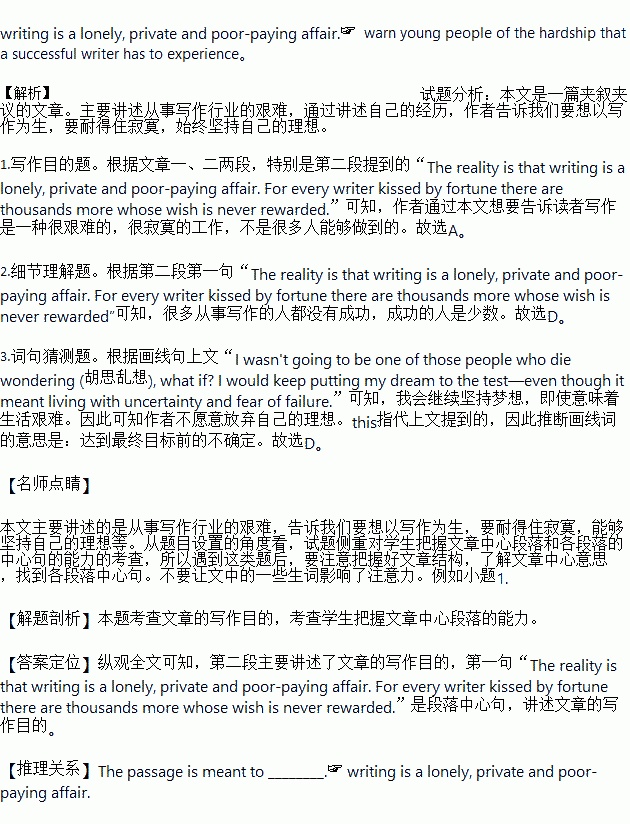题目内容
Many a young person tells me he wants to be a writer. I always encourage such people, but I also explain that there's a big difference between “being a writer” and writing. In most situations these people are dreaming of wealth and fame, not the long hours alone at a computer. “You've got to want to write,” I say to them, “not want to be a writer.” The reality is that writing is a lonely, private and poor-paying affair. For every writer kissed by fortune (运气) there are thousands more whose longing (渴望) is never rewarded. When I left a 20-year career in the U.S. Coast Guard to become a freelance writer (自由撰稿人), I had no chance of being successful at all; What I did have was a friend who found me my room in a New York apartment building. It didn't even matter that it was cold and had no bathroom. I immediately bought a used type-writer and felt like a real writer.
After a year or so, however, I still hadn't gotten a break and began to doubt myself. It was so hard to sell a story that barely(几乎不) made enough to eat. But I knew I wanted to write. I had dreamed about it for years. I wasn't going to be one of those people who die wondering (胡思乱想), what if? I would keep putting my dream to the test—even though it meant living with uncertainty and fear of failure. This is the Shadowland of hope, and anyone with dream must learn to live there.
1.The passage is meant to ________.
A. warn young people of the hardship that a successful writer has to experience
B. advise young people to give up their idea of becoming a professional (职业的)writer
C. Show young people it's unrealistic (不现实的)for a writer to gain wealth and fame
D. encourage young people to make efforts to be a writer
2.What can be concluded(推理) from the passage?
A. Real writers often find their work interesting and rewarding.
B. A writer's success depends on luck rather than on effort.
C. Famous writers usually live in the state of being poor and lonely.
D. The chances for a writer to become successful are small.
3.“Shadowland” in the last sentence refers to ________.
A. the wonderland one often dream about
B. the bright future that one is looking forward to
C. a world that exists only in one's imagination
D. the uncertainty before one's final goal is reached

